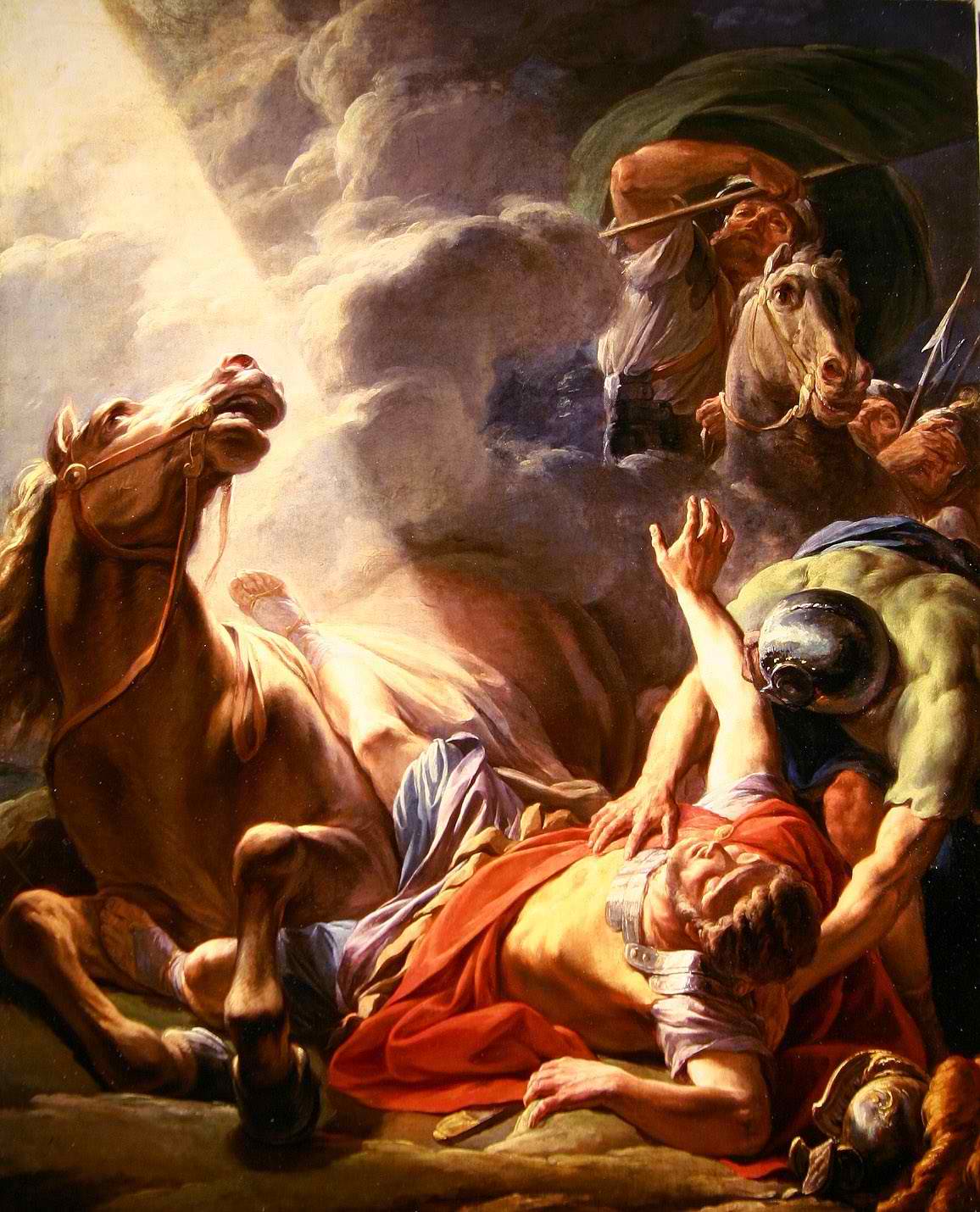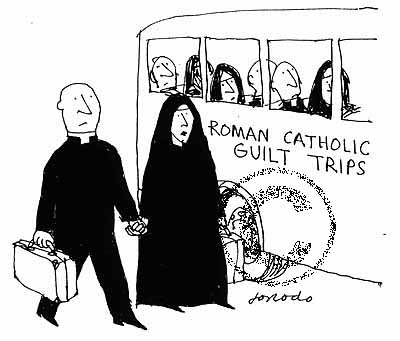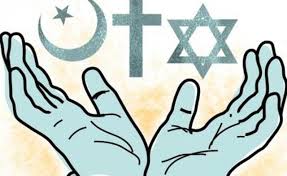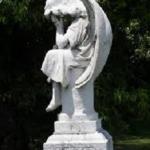Conversion is an odd phenomenon. I’ve often observed that those who convert, who ”tum around” radically in some aspect of their lives, tend to embrace their newly adopted beliefs and behaviors with a sense of urgency and commitment that can border on fanaticism. Thus those who quit smoking become front line enforcers in the “No Smoking” brigade, those who cut caffeine (or sugar, or anything significant) out of their diet will regale those of us who have not quit with endless data about why what they just quit ingesting will kill us, and someone who just lost fifty pounds looks at the ten-pound-overweight person with a judgmental eye.
But such converted commitments pale in comparison to the righteous energy of the religious convert. I’ve known many people who professed a  Saul-on-the-road-to-Damascus type of conversion experience, reporting that while once they were blind, they now see. And that new vision often looks more like tunnel vision than anything else. The beliefs and accompanying rules of their newly found religious perspective, beliefs and rules that they either rejected with disdain or were entirely ignorant of just yesterday, suddenly become the instruments according to which they measure the acceptability quotient of those outside their group. And the outsiders are generally found to be seriously wanting.
Saul-on-the-road-to-Damascus type of conversion experience, reporting that while once they were blind, they now see. And that new vision often looks more like tunnel vision than anything else. The beliefs and accompanying rules of their newly found religious perspective, beliefs and rules that they either rejected with disdain or were entirely ignorant of just yesterday, suddenly become the instruments according to which they measure the acceptability quotient of those outside their group. And the outsiders are generally found to be seriously wanting.
I was raised in a religious environment in which such “once for all” conversions were the hallmark of membership. But since I never had such an experience, I felt something like an outsider on the inside during all of my childhood and adolescent years. Although I stopped thinking of myself as a part of that religious community long ago, issues of my religious identity were frequently front and center during my sabbatical residence more than fifteen years ago at an ecumenical Institute on the campus of a Benedictine University and Abbey.
I am comfortable as a non-Catholic in Catholic surroundings, having spent my last thirty-five years teaching philosophy in Catholic higher education. This was different, though, because the whole focus of my sabbatical experience turned out, unexpectedly, to be about my own spiritual identity. I’ve always called myself a “person of faith,” even a Christian, but was no longer sure of what I meant by that—all I knew was that the traditional definition of “Christian” was becoming less and less meaningful all the time. Seeking some sort of reawakening I took full advantage of the daily prayers at the Abbey, eventually receiving a behind-the-scenes green light from one of the monks to receive communion if I wished, in total violation of Catholic exclusivity.
behind-the-scenes green light from one of the monks to receive communion if I wished, in total violation of Catholic exclusivity.
So I was somewhat taken aback by a conversation with a fellow resident scholar at the Institute shortly before the end of my four and a half month stay. The topic of conversation was a former Institute scholar who, during two year-long residencies at the Institute in the early nineties, wrote two books that spent several months at the top of the New York Times bestseller list. She made a couple of brief visits to the Institute, Abbey, and campus while I was there. She even ate corned beef dinner with the current residents on St. Patrick’s Day; I got to speak with her for ten or fifteen minutes and, just like any other groupie, got her to sign my copies of three of her books.
Although she was on campus for several reasons during her brief stays, it was clear to me that she, as non-Catholic as I, was getting her spiritual batteries recharged as she sat a few seats over from me during morning, noon, and evening prayers. So it surprised me when one of my fellow Institute residents, a Catholic convert whose powerful intellect and even more powerful spirit I’d come to respect and admire, expressed annoyance at the famous author’s behavior.
“It bothers me that she for years has come here to the Abbey  and to other monasteries (as described in her books) to bask in the liturgy, take full benefit of the prayers and services, yet she remains non-Catholic,” he said. “If she’s going to reap the gains, she should also have to suffer through the shit that we Catholics have to put up with on a daily basis.”
and to other monasteries (as described in her books) to bask in the liturgy, take full benefit of the prayers and services, yet she remains non-Catholic,” he said. “If she’s going to reap the gains, she should also have to suffer through the shit that we Catholics have to put up with on a daily basis.”
I assured my colleague that Catholics have no comer on dealing with religious excrement; my whole stay at the Institute had focused on struggling with the constricting grave-clothes of my own conservative Protestant upbringing. Furthermore, I reminded him, the transformation of spirit and soul that had been taking place in me over the past months, about which the two of us had conversed many times, had centered around my full participation, as a non-Catholic, in the liturgical and prayer life of the Catholic Abbey. “Your criticism of her applies to me too,” I said, to which he replied “but this is all very new and unexpected for you.”Implied but unspoken was his expectation that I would eventually convert to Catholicism.
But I didn’t convert and won’t be converting to Catholicism any time soon or ever. I used to think this was because of the powerfully top-down hierarchy of the Catholic Church, as well as its positions on any number of issues including the ordination of women and abortion. I still believe its positions on these issues are utterly wrong. But I know many Catholics, including the one with whom I was having this conversation, who long for the day when the Catholic Church will adopt a stance that engages honestly with all of the complexities of the abortion issue and will finally come to the realization that women are full-fledged members of the human race and are just as suited, perhaps more suited, to pursue ordination as men.
The real reason I won’t become Catholic is because I have no desire to become anything with a recognizable religious label other than committed seeker after God. I am officially an Episcopalian, confirmed in my late twenties as a response to a church whose liturgies and music I loved and to a specific faith community that embraced and nurtured me when I badly needed to be embraced and nurtured. For years I was not a regular attendee at any church services, Episcopal or otherwise, and my current church attendance is spotty. But I find that many of the Episcopalians I know are perfectly willing to accept into their circle persons with all sorts of religious histories (or none at all). As I often tell people unsure about the rules and limitations of Episcopal worship, if you have a pulse, you can participate in the Eucharist at an Episcopal church.
I told my fellow resident at the Institute that, as far as I was concerned, what happened to me at the Abbey had nothing to do with its being a Catholic place of worship.  It had everything to do with its being the place where, unexpectedly, I met the Divine in a new and exhilarating way. Under different circumstances, it could have happened in a synagogue, a mosque, on a mountain-top, or in my chair at home. “Oh, I have to disagree with you there,” he said. “I know you do,” I responded as I thought “but it is my encounter with God that I’m talking about. That’s bigger than any religion.”
It had everything to do with its being the place where, unexpectedly, I met the Divine in a new and exhilarating way. Under different circumstances, it could have happened in a synagogue, a mosque, on a mountain-top, or in my chair at home. “Oh, I have to disagree with you there,” he said. “I know you do,” I responded as I thought “but it is my encounter with God that I’m talking about. That’s bigger than any religion.”













